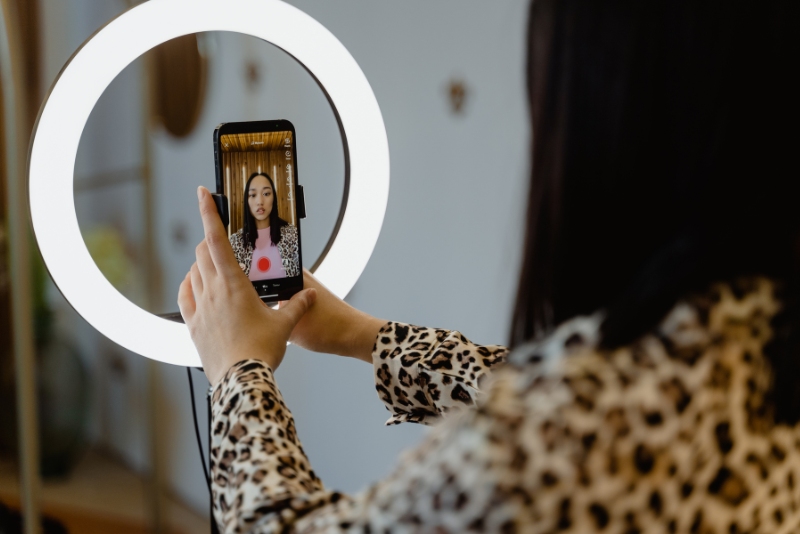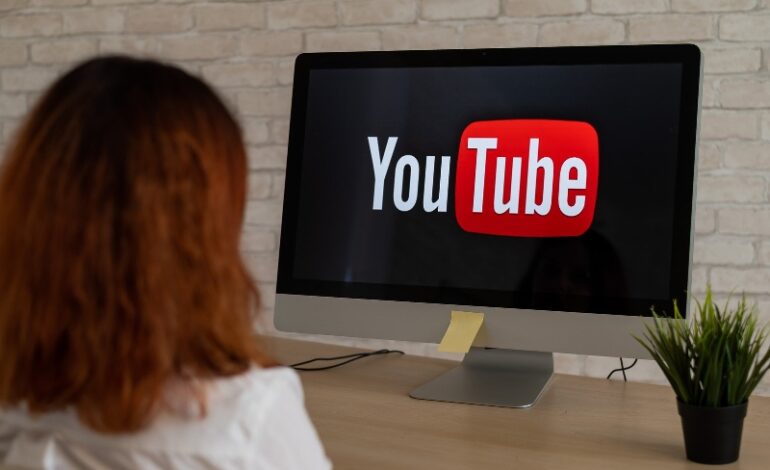TikTok’s Colossal Transformation: Navigating the Sensitive Impact of Viral Content in the Digital Decade (2027)

Riding the Waves of Change: Exploring the Meteoric Rise and Societal Impact of TikTok
In the ever-evolving landscape of social media, few platforms have risen to prominence as rapidly and disruptively as TikTok. Emerging from humble beginnings, this short-form video-sharing app has captivated the attention of billions worldwide, redefining the way we create, consume, and engage with digital content.
The Birth of a Phenomenon: TikTok’s Meteoric Rise to Dominance

The origins of TikTok can be traced back to 2016, when a Chinese technology company, ByteDance, launched a video-sharing platform called Douyin. Recognizing the growing appetite for bite-sized, entertaining content, the platform’s unique algorithm and intuitive user interface quickly gained traction within the Chinese market, paving the way for its global expansion.
In 2017, ByteDance launched the international version of the platform, known as TikTok, with the aim of bringing its innovative concept to a global audience. The timing of TikTok’s introduction proved to be serendipitous, as it coincided with a shift in social media trends, where users were increasingly gravitating towards more spontaneous, visually-driven, and authentically expressive forms of content.
TikTok’s rise to prominence was nothing short of meteoric. Fueled by its highly personalized algorithm, which curates content based on user preferences and engagement, the platform rapidly amassed a loyal user base, particularly among younger generations. The ease with which users could create, share, and discover short, creative videos resonated with a generation accustomed to the fast-paced, scrollable nature of social media.
Within just a few years, TikTok had firmly established itself as a global phenomenon, surpassing 1 billion monthly active users worldwide and solidifying its position as a formidable player in the social media landscape. The platform’s ability to foster a sense of community, creativity, and cultural exchange has been a key driver of its success, captivating users with its unique blend of entertainment, education, and social interaction.
Democratizing Content Creation

One of the most notable impacts of TikTok has been its ability to democratize content creation, empowering individuals from all walks of life to become creators and share their unique perspectives with the world. The platform’s user-friendly tools, intuitive editing features, and algorithm-driven discovery process have lowered the barriers to entry, allowing anyone with a smartphone and a creative spark to produce and share engaging content.
This democratization of content creation has given rise to a new generation of “TikTok stars,” individuals who have leveraged the platform’s reach and engagement to build substantial followings and even launch successful careers as full-time content creators. The platform’s recognition of diverse talents and its ability to propel unknown individuals to viral fame has disrupted the traditional pathways to stardom, challenging the dominance of mainstream media and established influencers.
Reshaping Content Consumption Habits

TikTok has also had a transformative impact on the way users consume and engage with digital content. The platform’s short-form video format, coupled with its highly personalized algorithm, has fundamentally altered the attention spans and scrolling behaviors of its users.
Accustomed to the rapid-fire, visually captivating nature of TikTok’s content, users have developed a heightened expectation for concise, engaging, and instantly gratifying digital experiences. This shift in content consumption habits has forced other social media platforms and content creators to adapt their strategies, prioritizing the production of bite-sized, attention-grabbing content to remain relevant and competitive.
Moreover, TikTok’s algorithm, which leverages machine learning and user data to curate highly personalized content feeds, has disrupted the traditional model of social media, where users were primarily exposed to content from their immediate social connections. By focusing on user engagement and interests rather than social networks, TikTok has introduced a new paradigm of content discovery, empowering users to explore a diverse range of topics and perspectives beyond their immediate social circles.
Influencing Broader Cultural and Social Trends

The impact of TikTok extends far beyond the realm of content creation and consumption, as the platform has also emerged as a powerful cultural and social force, shaping trends, conversations, and even real-world events.
TikTok’s ability to rapidly amplify viral challenges, dance crazes, and cultural memes has led to the platform becoming a key driver of cultural trends, with its influence rippling across various industries and spheres of society. From fashion and music to politics and social activism, TikTok has become a stage for the emergence and propagation of cultural phenomena, blurring the lines between digital and physical worlds.
Moreover, the platform’s role in amplifying the voices of underrepresented communities, grassroots movements, and social causes has given rise to a new era of digital activism and civic engagement. TikTok has become a powerful tool for raising awareness, mobilizing support, and driving meaningful change on a global scale, reshaping the landscape of social and political discourse.
Privacy and Data Security Concerns

One of the primary areas of concern surrounding TikTok is the issue of privacy and data security. As a platform owned by a Chinese tech company, ByteDance, TikTok has faced heightened scrutiny over its data collection and handling practices, with allegations that it may be funneling user data to the Chinese government.
These concerns have led to bans or restrictions on TikTok’s use in several countries, including the United States, India, and parts of Europe, as governments and regulatory bodies grapple with the potential national security and privacy implications of the platform’s operations. Navigating these complex issues and reassuring users about the protection of their personal data will be a crucial challenge for TikTok as it seeks to maintain its global footprint.
Misinformation and Content Moderation Challenges

Another significant challenge facing TikTok is the platform’s struggle to effectively moderate the vast amount of user-generated content and address the spread of misinformation, hate speech, and harmful content.
The rapid, viral nature of TikTok’s content and the platform’s reliance on algorithms to curate and amplify content have made it particularly vulnerable to the proliferation of misinformation and the manipulation of its recommendation systems. Addressing these issues requires a delicate balance between preserving the platform’s creative freedom and ensuring the safety and well-being of its users.
TikTok’s content moderation efforts have come under intense scrutiny, with critics highlighting the platform’s apparent shortcomings in detecting and removing harmful content in a timely and consistent manner. Navigating these complex challenges will be crucial for TikTok as it seeks to maintain the trust and confidence of its user base and safeguard the integrity of its platform.







